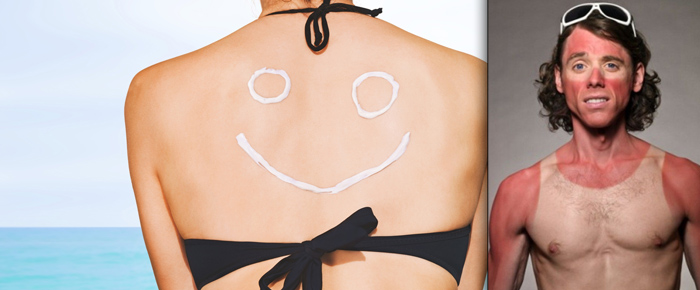
By Dr Peter Kadile
Summer isn’t officially here yet, but it’s getting hotter. We need to protect ourselves from the harmful effects of the sun’s rays.
Dear Dr. Kadile, what is a good SPF for sunscreen? –Brendan, Palm Springs
Brendan, SPF stands for Sun Protection Factor and ranges from 2 to as high as 50. It refers to the sunscreen’s ability to screen or block out the sun’s harmful rays. The number stands for the length of time one can stay in the sun using the sunscreen before burning compared to when not wearing a sunscreen. For example, if a person uses a sunscreen with an SPF 15, that person can be in the sun 15 times longer than without sunscreen before burning.
Dermatologists recommend using a sunscreen with an SPF of 15 or greater, higher SPF if you are lighter or fair skinned. Choose a sunscreen that protects against UVB and UVA radiation.
If you plan on doing a lot of swimming or water activity, then I would recommend a “waterproof” sunscreen over a “water resistant” brand. A waterproof sunscreen maintains its SPF level twice as long as a water resistant product when exposed to water.
Don’t forget to reapply the sunscreen because they will sweat off, so follow the directions on the bottle on how frequently you need to reapply.
Dear Dr. Kadile, is there a difference between sunblock and sunscreen? –James, Desert Hot Springs
James, sunblock are physical sunscreens that contain chemicals such as titanium dioxide and zinc oxide that physically block the ultraviolet radiation. Sunblocks provide good protection against UVB and UVA light. Some new zinc oxide products are brightly colored and are part of the “fashion” for a lot of younger people at the beach. Most of the sunscreens we are familiar with are considered chemical and contain ingredients that act as filters to reduce ultraviolet radiation penetration to the skin.
Dr. Kadile, what do you recommend for a sunburn? –Jade, La Quinta
Well, prevention is always the best, but if you do get a sunburn there are several things you can do.
– Apply a cool compress to the burned area
– Take a cool shower or bath
– Over the counter anti-inflammatories, such as ibuprofen or naprosyn can help relieve the inflammation and pain
– Application of lotions containing aloe vera help to soothe and moisturize the skin. Some products used specifically for sunburn contain lidocaine, which is an anesthetic and can numb the sunburn pain.
– Over the counter 1% hydrocortisone cream may help relieve the pain and itching
– Vitamin E oil the skin can decrease the inflammation
Dear Dr. Kadile, when is the best time to apply sunscreen? –Thomas, Rancho Mirage
Sunscreen should be applied to dry skin 30 minutes before going outside.








































